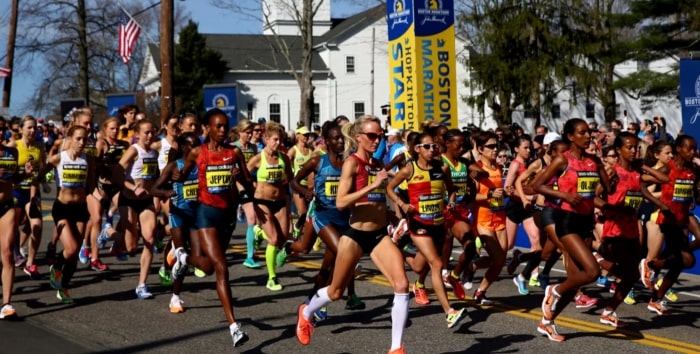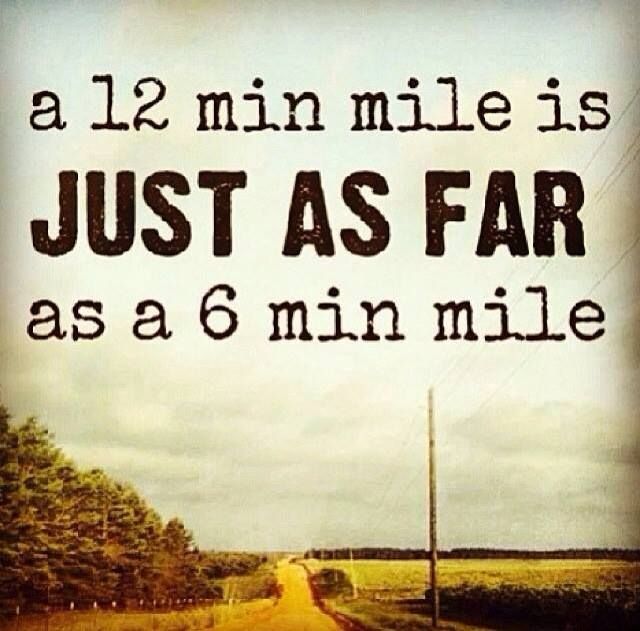“How long does it take to train for a marathon?” people ask. That sounds like an easy question, but there are a lot of variables. The answer depends on if the runner has a running base or not.
Also, is the question referring to actual training weeks from day one of the training plans to the race? Or are you referring to the time on feet commitment of training week after week?
The number of hours one spends training each week will vary depending on the pace of the runner and the chosen plan, as well as the runner’s experience and goals. For the first time, the inexperienced runner is likely to choose a novice marathon plan, while a veteran runner is more likely to chose an intermediate plan with a greater time commitment.
How Long Will It Take Me To Run a Marathon
Your elite marathoners will finish around 2:03 for men, and 2:16 for women. According to Runners World, the average marathoner finishes at around 4:40. This is more than double the time on feet as elites!
For many runners, the 4-hour mark is a magical goal, where the runner has maintained around a nine-minute mile pace for the entire 26.2 miles.
The elusive Boston Qualifying time (otherwise known as a BQ or “chasing the unicorn”) is another goal of many marathoners.
Training Plans: So Many Choices
There are many training plans out there. Most follow a 16-20 week timeline. A search for “marathon training plans” will yield many names in distance running. It will also produce a variety of ability levels from novice to advanced, and different training methods.

Some training plans have you do some pace setting runs (often 1 mile, 4-5 miles, and a longer run) then determine what training paces will be from that baseline.
Other coaches feel strongly that heart rate training is the way to go. Still, others think that perceived effort is most effective.
Hal Higdon Marathon Training Programs
✓ Novice
Hal Higdon is a well-respected name in distance training. According to the Higdon beginner programs, a person can train for a marathon in 18 weeks if the runner:
- Can already run 6 consecutive miles
- Is currently running at least 15-22 miles per week
- Has planned to train at least 5 days each week
✓ Advanced
The Hal Higdon advanced program assumes the runner has a strong mileage base. The advanced runner may not be fast, but runs 30-40 miles per week and consistently engages in double-digit runs.
Words like fartlek, tempo runs, and intervals are familiar. The advanced runner is comfortable doing hill workouts and expects to train 6 days most weeks.
Cool Running Beginner Marathon Program
Another common name in distance training programs, the folks at Cool Running agree that a beginner marathoner can train for a marathon in about 18 weeks.
The Cool Running plan makes the same assumptions about a beginner marathoner regarding base level fitness in order to begin a marathon training plan.
Jeff Galloway Training Plan
Jeff Galloway is a well-known runner and is touted for his Galloway training method which includes run and walk intervals. Galloway agrees with the timeline and encourages first-time marathoners to throw all expectations of time to the wind and just set out for completion.
The Galloway method has clear expectations of pace based on time trials he asks athletes to complete. He pushes for slow runs to be slow, easy runs to be easy, and for people to be realistic.
Although many runners think the word “walk” is a dirty word, they would be surprised to hear that people get the coveted BQ using this method.
The Galloway Method is unique in that it is a 30-week program for novice runners.
The Team in Training (or TNT)

The Leukemia and Lymphoma Society (or LLS) takes individuals from Couch to Marathon in 20 weeks or so. Sounds too good to be true? Well, they also assume if you are a non-runner, signing up for this program, it is for one of two reasons:
- You feel passionate about the cause
- You have always wanted to run a marathon and think this is a good way to motivate yourself
- Both of the above
The Team in Training offers training plans, virtual coaching, help with fundraising, some cool running swag, as well as support on the course. Some larger cities even offer weekly training runs with coaching and volunteer on the training courses.
TNT often assumes that newbie runners simply want to finish the race and enjoy the journey and modify training accordingly to reflect that.
Real-Time Devoted to Training
In addition to considering the number of weeks, one will dedicate to marathon training, another very real consideration is the actual hours that will be put into training.
We have all seen the catchy memes that read, “A 12-minute mile is just as far as a 6-minute mile.” This is certainly true; however, the 12-minute miler spends twice as much time on his or her feet.

When considering an undertaking such as this one, do some reflection. If you are a 10-minute miler, it is easy to do the math. A midweek 6-mile run will take about an hour. A 20 miler? Three and a half hours.
Here’s the thing though: If you run a 10K in about an hour, how long will a ten miler take? Or a twenty miler? Plan to slow down, that is just reality.
Consider your job, your family and other obligations when choosing a race. Also, you should look at the climate in your region as well as the weather where you plan to run. Training in the Midwest all winter then racing in Florida in February may be a shock to your system.
If you are an accountant, peak training should probably not fall during tax time. If you live in the south, you may not want to be completing 20 milers in the hottest months of summer.
Choosing a Race
It is smart to choose a race prior to finding a running schedule and committing to a timeline. Consider the above things regarding the time of year that would be most conducive to your training, then ask yourself, “Where would I like to run my marathon?”.
If it is the first marathon, spectator support is a great thing to consider. Also, is it important to you that your family, friends or loved ones be present? For some, the marathon is alone venture and these things don’t matter; but those people seem to be in the minority.
The question seems so simple: how long will it take me to train for a marathon? The simple answer is 18-22 weeks. The complicated answer is hours and hours and hours, but it’s an incredible adventure. Buckle up and enjoy the ride.
